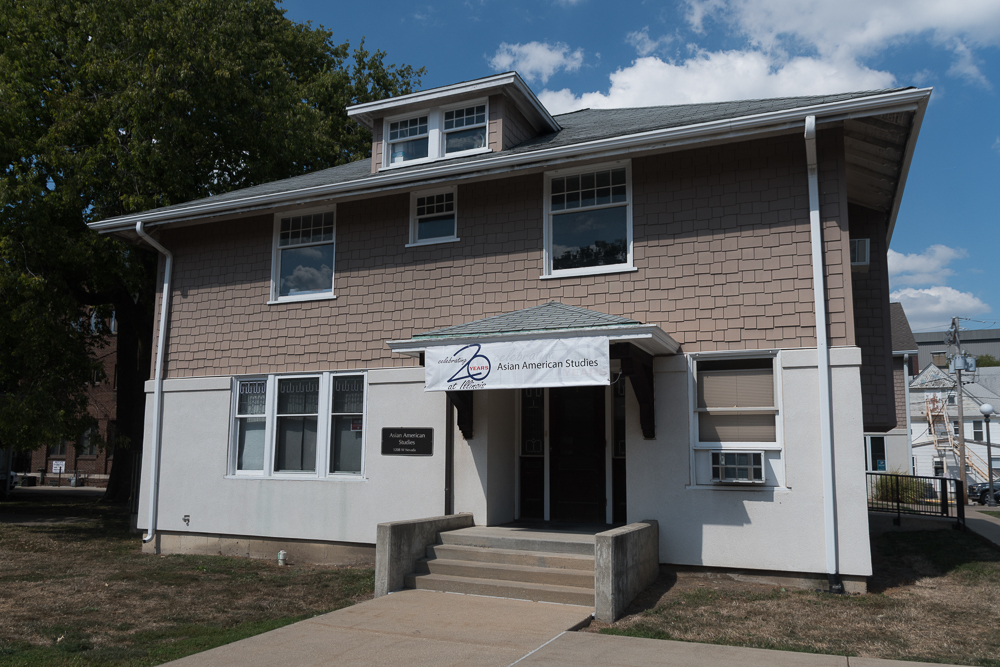Asian American Studies celebrates 20 years on campus
The exterior of the Asian American studies building. The program is studying its 20th year on campus.
Sep 20, 2017
In 1997, the committee for Asian American Studies was established on campus with the help of Asian American RSOs, professors and faculty. Twenty years later, that committee has evolved into the first Department of Asian American Studies in the Big 10.
For the celebration of the 20th anniversary of the Asian American Studies program at the University, the department will be putting together several events throughout the school year, which began with a lecture on human rights and Asian Americans Tuesday.
Other events that will happen during the school year include lectures by renowned guest speakers as well as the Asia Unbound conference, which will occur in April.
The Asian American Studies program was deemed its own department in 2012. Before the 2016-2017 school year, the University only offered a minor in Asian American Studies. Starting in the Fall of 2016, the University offered a major in Asian American Studies.
Martin Manalansan is the head of the Department of Asian American Studies and an associate professor of anthropology and Asian American Studies.
Get The Daily Illini in your inbox!
Manalansan said one of the hardest parts of being a small, relatively new program on campus is gaining recognition, but becoming a named department was a huge step forward.
“The fact that we were made into a department is a good recognition of our ability institutionally to be at par with other departments,” Manalansan said.
Bing Wang was the first graduate of the Asian American Studies Department at the University, earning his degree at the end of the 2016-2017 school year. Wang double majored in both Asian American Studies and Political Science. He is now applying to graduate schools for Asian American Studies or Ethnic Studies.
Wang wrote in an email that what makes the University’s department unique is the interdisciplinary aspect that the faculty has worked hard to create.
“Asian American Studies is an interdisciplinary subject, so it draws from numerous disciplines such as history, literature, sociology, anthropology, English and many others,” Wang wrote. “All of these disciplines coalesce to inform Asian American Studies. You are given the opportunity to gain knowledge from a variety of resources.”
Wang also wrote that while the goal of the department is of course to teach students about Asian American culture, history and society, the lessons taught in his classes can be applied to other contemporary real world issues as well.
“Asian American Studies isn’t just learning about Americans of Asian descent, it’s also learning about how race, gender and sexuality confers or denies privilege from certain people,” Wang wrote. “We learn about policies and ideologies that perpetuate the oppression of marginalized people in America and in the world.”
Augusto Espiritu is an associate professor at the University. He teaches one of the most popular classes in the department: Intro to Asian American Studies.
Espiritu believes the presence of minority studies on college campuses is important because they have a ripple effect into the real world. He said that if minority studies are not taught, it can lead to misunderstanding and conflict.
“Whenever these lessons in history and society are ignored and don’t get taught, that’s why the countries develop such great social interracial tensions,” Espiritu wrote.
Wang also wrote that since minority studies are often forgotten in curriculum before college, departments such as the department of AAS are even more essential. At a time in their life when students are becoming more influential in the world, minority studies are important in shaping their world views.
“In our pre-college textbooks, Asian Americans and minorities are largely absent. Asian American Studies and ethnic studies allows us to view history and society from a different lens than what we’re used to,” Wang wrote.
Wang also wrote that we have the opportunity to understand the lived experiences along with social, economic, historical and political condition of minorities.
“These departments challenge the narrative that minorities are inferior, that our stories do not matter as much as the dominant hegemonic power,” Wang wrote.
Wang believes that ethnic studies are key to beginning to solve interracial conflicts, and prevent the oppression of minorities.
“Ethnic studies give us more insight to the plight and struggles of marginalized people, both in the past and ongoing … Human beings are alienated solely based on their existence,” Wang wrote. “These ethnic studies programs educate us on why these unjust events occur and how we as people can alleviate these problems.”






